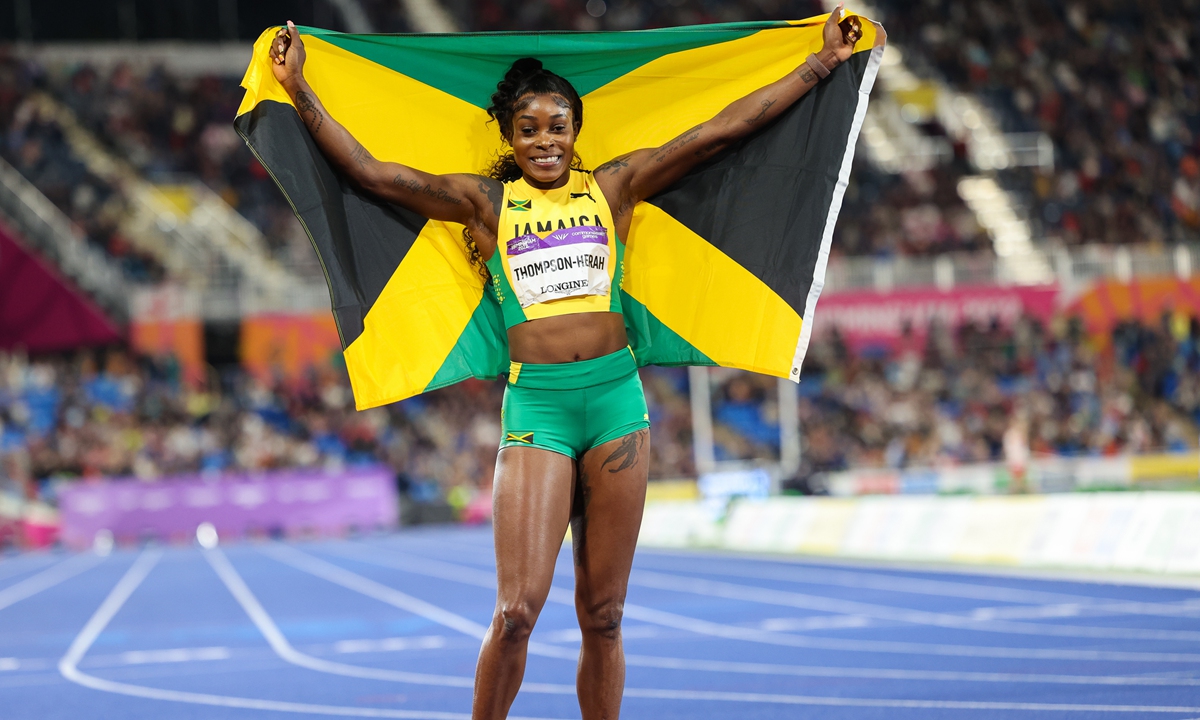
Jamaican sprinter Elaine Thompson-Herah Photo:IC
The International Olympic Committee (IOC) has recently announced a new social media policy for the Olympic Games in which athletes are allowed to post photos, audio, and video recordings of up to two minutes on their social media accounts. It has opened the doors for athletes to connect with the global audience like never before.Starting with young athletes who are going to compete at the 2024 Winter Youth Olympic Games in Gangwon, South Korea, which starts on January 19 , their stories on the journey to the venues their idols had competed at six years ago during the Pyeongchang Winter Olympics will be documented through traditional broadcasters but also their personal social media accounts.
Though the IOC has made it clear that streaming or AI-generated content is strictly prohibited, the move is a significant departure from previous restrictions imposed on athletes, where video rights were predominantly controlled by media rights holders.
Jamaican sprinter Elaine Thompson-Herah , who made history at the Tokyo Olympics in 2021 by becoming the first woman to win gold in the 100 and 200 meters in consecutive Games, once had her Instagram account blocked temporarily from posting after she shared a video of her Olympic races. The IOC said at that time the rights-holding broadcasters held the exclusive rights of content distribution on social media and athletes were "invited" to share content from broadcasters on their accounts but could not post their own competition content.
Social media has increasingly become a key way for audiences to engage with the Olympics Games. The IOC's decision to relinquish control over short video rights is seen as a step toward a more diversified Olympic experience, allowing athletes to showcase their personalities beyond the competitive arena as the new permission has extended to various Olympic settings, including the Opening and Closing Ceremonies, the Champions Park celebrations, the Olympic Village, and both training and competition venues.
This move by the IOC not only marks a shift in content ownership but also aims to enhance the connection between athletes and their fans. With the rise of social media, athletes have become influential figures, and fans crave a more intimate look into their lives. Allowing athletes to share their experiences directly fosters a sense of authenticity, breaking down the traditional barriers that separated Olympians from their global audience.
However, the guidelines also stress the importance of responsibility and adherence to Olympic values. Athletes are prohibited from creating content that is discriminatory or obscene. Additionally, specific restrictions are in place for competition venues, where posting is only allowed up to one hour before the start of an event or after the athlete has left designated zones. The IOC emphasizes the need for consent when sharing content from restricted areas, such as medical zones, respecting the privacy of others.
The impact of this decision is not limited to the Olympic Games alone; it sets a precedent for other sports organizations and associations to reevaluate their approach to athlete content. By allowing athletes to share their lives beyond the competitive arena, the IOC is paving the way for a more comprehensive and personal view of athletes' preparations and experiences.
For international sports federations, the IOC's decision serves as a model for future adjustments. The newfound ability for athletes to share their personal journeys may contribute to a broader and more diversified perspective on sports, allowing audiences to witness the dedication, sacrifice, and joy that goes into being an Olympian.
The implementation of the social media guidelines is poised to revolutionize the way fans experience the Olympics, as the fans will have the opportunity to see glimpses of an athlete's journey to an event, from the adrenaline-pumping moments on the field of play to the camaraderie with other athletes. A more immersive and authentic connection between fans and their favorite athletes can be expected, as we can gain more insight into the behind-the-scenes moments that define the Olympic spirit.
As 2024 marks a big year in sports, headlined by the Paris 2024 Olympics and coupled with multiple world championships, the IOC's decision to allow accredited athletes to share their Olympic experiences through social media is a commendable step toward fostering a stronger connection between athletes and their global audience. The world is about to witness a new chapter in the Olympic journey and beyond - where athletes take center stage in sharing their triumphs, challenges, and the moments that define their legacy.
The author is a reporter with the Global Times. life@globaltimes.com.cn
